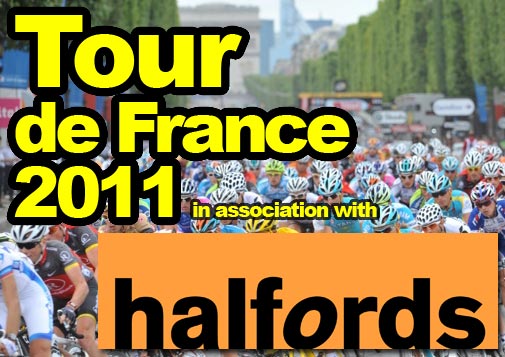UCI and AFLD collaborate on Tour de France dope tests


Cycle sport's governing body, the Union Cycliste Internationale (UCI), and the French Anti-Doping Agency (AFLD) have agreed to collaborate over anti-doping procedures at this year's Tour de France (July 2-24 2011).
The two organisations fell out over Tour dope testing at the 2009 event when AFLD claimed that the UCI anti-doping inspectors had not followed correct procedures. AFLD claimed that the UCI gave preferential treatment to Astana riders, giving them more notice of dope controls than other teams. The UCI denied the allegations.
In 2010, the UCI carried out dope testing at the Tour de France without AFLD. World Anti-Doping Agency (WADA) inspectors followed the UCI testers during the 2010 Tour and produced an independent report. Part of the report recommended that the UCI patch up its differences with AFLD and present a unified front against doping at the race.
Both the AFLD and UCI will field two teams of three anti-doping inspectors each day, comprised of staff from each organisation. One team will take samples at the stage finish and the other will concentrate on 'on-the-spot' tests.
According to the UCI, all 198 riders in the 2011 Tour de France will have blood samples taken on the Thursday before the race starts. The data from the samples will be added to each rider's biological passport, and will therefore form part of a long-term reference for riders' blood and urine values.
These pre-Tour samples will be analysed at the Laussanne laboratory in Switzerland, with in-race samples being analysed at the Châtenay-Malabry laboratory in France.
A minimum of 150 urine and 50 blood samples will be taken during the event in addition to further biological passport tests.
Get The Leadout Newsletter
The latest race content, interviews, features, reviews and expert buying guides, direct to your inbox!
The UCI has also announced that it will introduce a rule from July 1 2011 preventing riders who are found guilty of violating anti-doping regulations from subsequently working on the staff of a cycling team.
The UCI and AFLD anti-doping teams have already worked together at the 2011 Critérium du Dauphiné and Paris-Nice.
Related links
AFLD offers UCI anti-doping help at Tour
UCI vs AFLD war of words intensifies
Tour de France doping inspector responds to AFLD criticism


Thank you for reading 20 articles this month* Join now for unlimited access
Enjoy your first month for just £1 / $1 / €1
*Read 5 free articles per month without a subscription

Join now for unlimited access
Try first month for just £1 / $1 / €1

Nigel Wynn worked as associate editor on CyclingWeekly.com, he worked almost single-handedly on the Cycling Weekly website in its early days. His passion for cycling, his writing and his creativity, as well as his hard work and dedication, were the original driving force behind the website’s success. Without him, CyclingWeekly.com would certainly not exist on the size and scale that it enjoys today. Nigel sadly passed away, following a brave battle with a cancer-related illness, in 2018. He was a highly valued colleague, and more importantly, an exceptional person to work with - his presence is sorely missed.
-
 FDJ-Suez, SD Worx-Protime, Lidl-Trek confirmed for Tour of Britain Women as strong list of teams announced
FDJ-Suez, SD Worx-Protime, Lidl-Trek confirmed for Tour of Britain Women as strong list of teams announced18 teams set to take part in four-day WorldTour stage race
By Tom Thewlis
-
 Cyclists could face life sentences for killing pedestrians if new law passed in England and Wales
Cyclists could face life sentences for killing pedestrians if new law passed in England and WalesReckless cycling currently carries a maximum two-year jail term
By Tom Thewlis